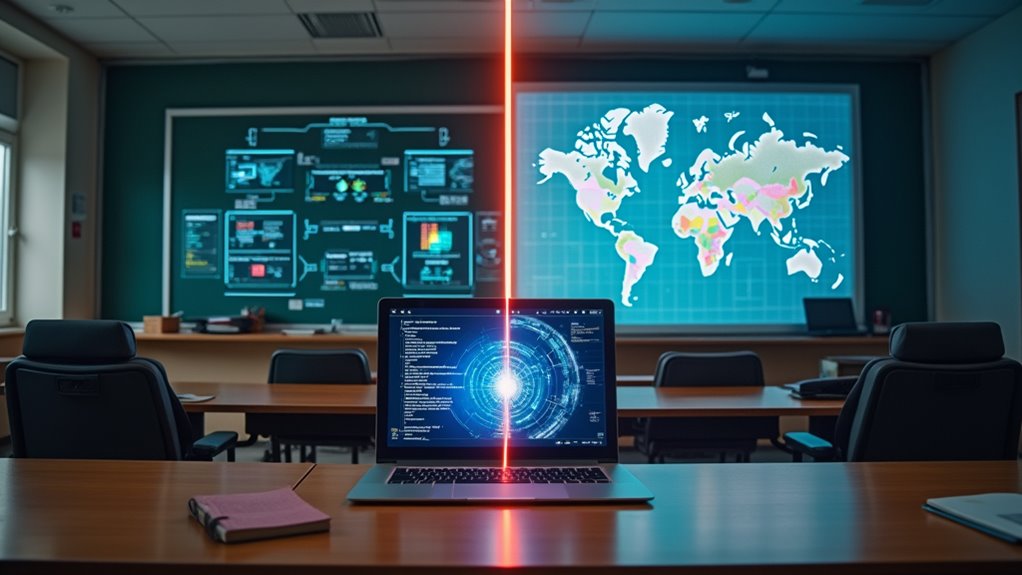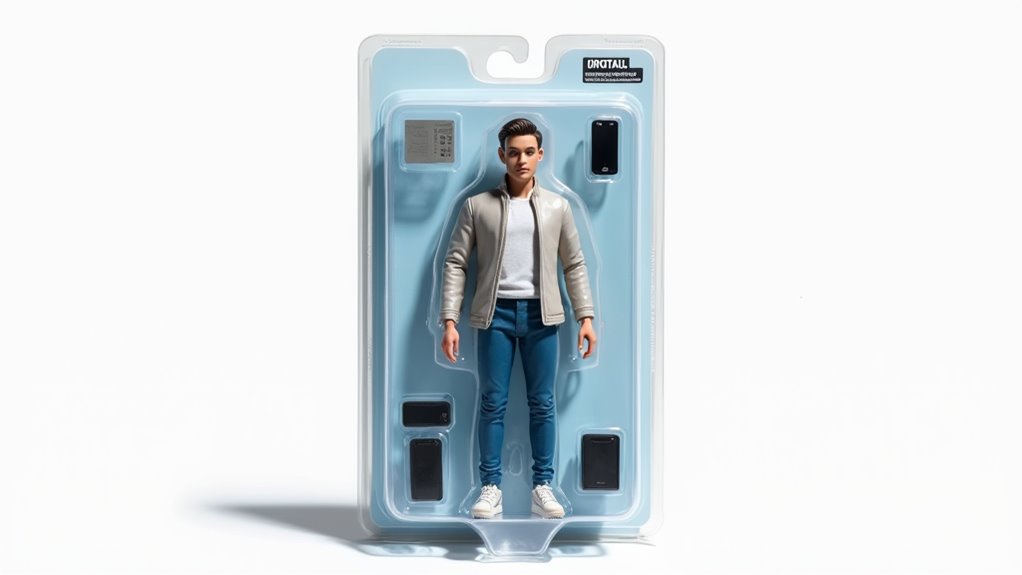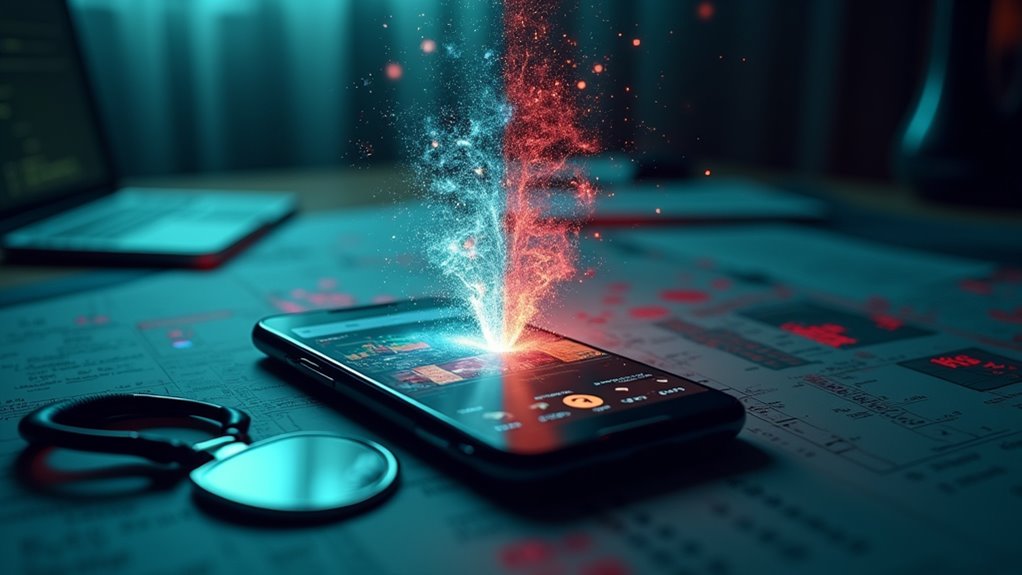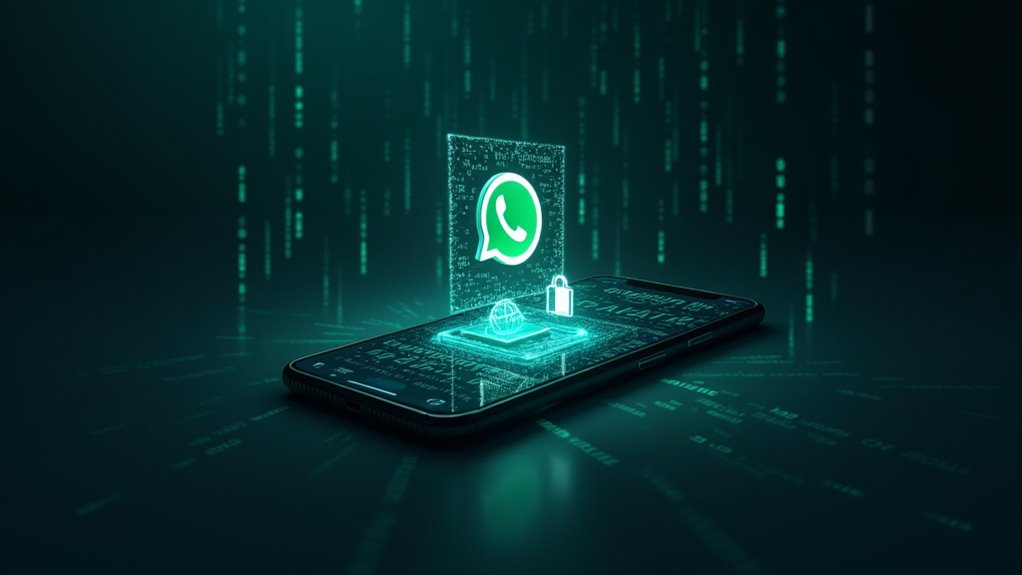World’s Orb Mini device scans your irises to create digital ID credentials that prove you’re human, not a bot. About the size of a smartphone, it uses dual sensors and on-device processing—no cloud storage drama here. Operated by local businesses in expanding US cities, it’s positioning itself as the antidote to deepfakes and AI chaos. Privacy advocates remain skeptical, though—turning your eyeballs into crypto passports feels distinctly Philip K. Dick-esque. The rabbit hole goes deeper.
This smartphone-like device packs a serious tech punch: dual front-facing iris sensors that don’t just take pretty pictures of your eyes but verify you’re an actual human being. Because in 2023, that’s apparently something we need to prove. The scanner leverages multispectral sensors and an Nvidia Jetson Xavier NX chip to process everything right there on the device—no shipping your eyeball data to mysterious servers.
Welcome to 2023, where proving your humanity requires letting a device scan your eyeballs—all processed locally, for your privacy peace of mind.
Think of it as your digital passport for the crypto wilderness. Once verified, you receive proof-of-personhood credentials that fundamentally say, “Yes, this account belongs to a flesh-and-blood human, not ChatGPT pretending to be your grandmother trying to borrow Bitcoin.”
The timing couldn’t be more relevant. As AI-generated deepfakes and bot armies flood our digital spaces, distinguishing humans from machines has become the internet’s newest existential crisis. The Orb Mini positions itself as the bouncer at the door of legitimate online interaction. Users should carefully consider whether this verification approach fully addresses algorithmic bias that can disproportionately impact marginalized communities. Developed by Rich Heley, former Apple director now serving as Chief Device Officer, the Orb Mini represents a significant advancement in portable verification technology.
Privacy skeptics might raise eyebrows—ironically, using the very facial features the device wants to scan. But Worldcoin emphasizes its security measures: on-device processing, encrypted storage, and user consent controls that let you delete your data faster than your embarrassing social media history.
The ecosystem works through “Orb Operators”—local businesses deploying these eye-scanning gadgets while you casually grab coffee. The company is expanding rapidly with new physical locations in six U.S. cities including Austin and Miami, adding to their international presence. All very normal, right?
Whether this technology represents a brilliant solution to digital identity fraud or the next step toward a dystopian surveillance state probably depends on your philosophical bent.
But one thing’s clear—in our efforts to escape AI chaos, we’re creating systems that would make Philip K. Dick reach for his typewriter.









